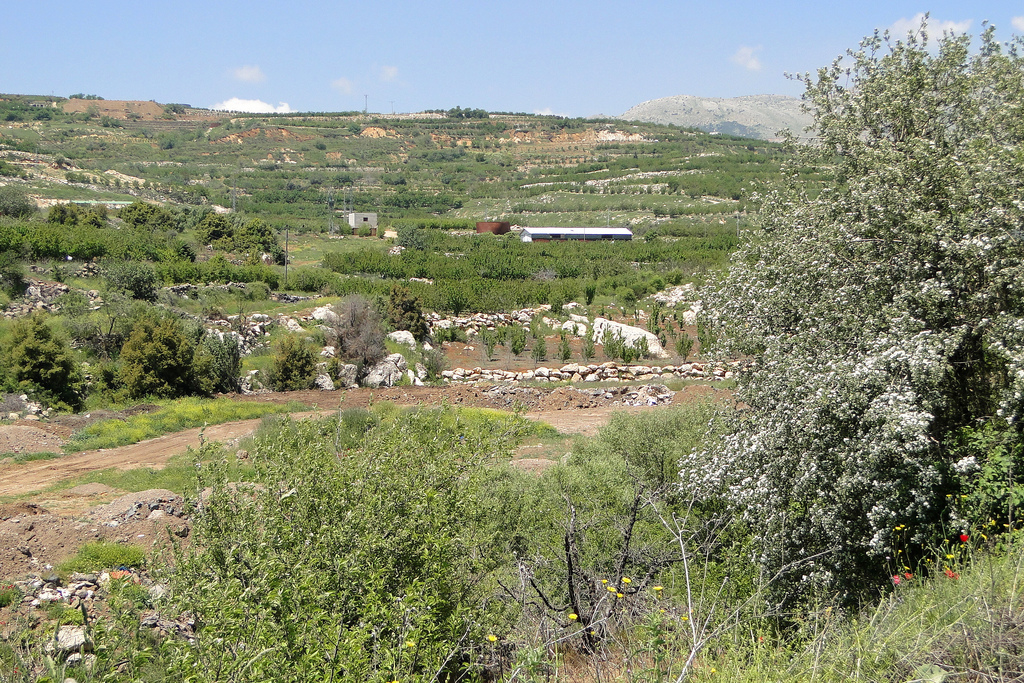A little over one day after President Donald Trump withdrew the U.S. from the Obama-era Iran nuclear deal, the Israeli military launched attacks on dozens of Iran-linked military targets in besieged Syria in response to reported rocket fire in the Golan Heights. The attack marks a significant escalation in the region between Israel and Iranian proxies.
The Israel military has blamed the attack on the Iranian-backed Quds Force, a special forces unit affiliated with Iran’s Revolutionary Guard Corps. Although the attack did not result in any casualties, this is the first time that Iranian forces have fired directly on Israeli troops.
The rocket fire into the Golan Heights was met with the largest military intervention from Israel into neighboring Syria in decades. People in northern Israel heard the sounds of screaming jets flying overhead for over four hours as Israeli military forces responded with hitting over 70 targets in Syria, according to The Washington Post.
“This was by far the largest strike we have done, but it was focused on Iranian sites,” said Lieutenant Colonel Jonathan Conricus, an Israeli military spokesman. In response, an unidentified official from the Syrian Foreign Ministry called the overnight attacks a, “new phase of aggression.”
Conricus said Israeli forces witnessed an Iranian rocket salvo firing into the Golan Heights just after midnight. Four of the 20 rockets fired were intercepted, with the others falling short of their targets.
“We saw it was very clear what the Iranians were doing, attacking Israel from Syrian soil,” he said.
Israel and Iran have been on an evitable warpath in recent months as the Israeli government has vowed not to let Hassan Rouhani’s government build a nuclear weapon and build a presence near the Golan Heights. As attacks from Israel have increased, Iran has threatened retaliation, especially after seven of its troops were killed in April by an Israeli airstrike.
Although the attack on the Golan Heights comes just after Trump announced the ending of U.S. involvement in the Iran nuclear deal, officials from Israel have downplayed an alleged link.
White House press secretary Sarah Huckabee Sanders condemned Iran’s “provocative rocket attacks from Syria against Israeli citizens” and supported Israel’s “right to act in self-defense.”
In an additional statement, Sanders said, “The Iranian regime’s deployment into Syria of offensive rocket and missile systems aimed at Israel is an unacceptable and highly dangerous development for the entire Middle East…Iran’s Islamic Revolutionary Guard Corps (IRGC) bears full responsibility for the consequences of its reckless actions.”
Furthermore, the White House has called on Iran and its proxies “to take no further provocative steps.”
On Wednesday, Iran’s Defense Minister Brigadier General Amir Hatami pledged that the Iranian government would continue to develop its missile capabilities. Hatami, speaking to officials in Tehran, made no direct mention of Israel or other nations and of the attack, but cited pressures from “enemies of Iran.”
Tehran’s strong support for the Assad regime in Syria has allowed for the proliferation of Iran-backed military outposts near the border with Israel. Although Middle Eastern media outlets claim the provocation is between Isreali and Syria, it is certainly stemming from the first steps to all-out battle between Israel and Iran.







